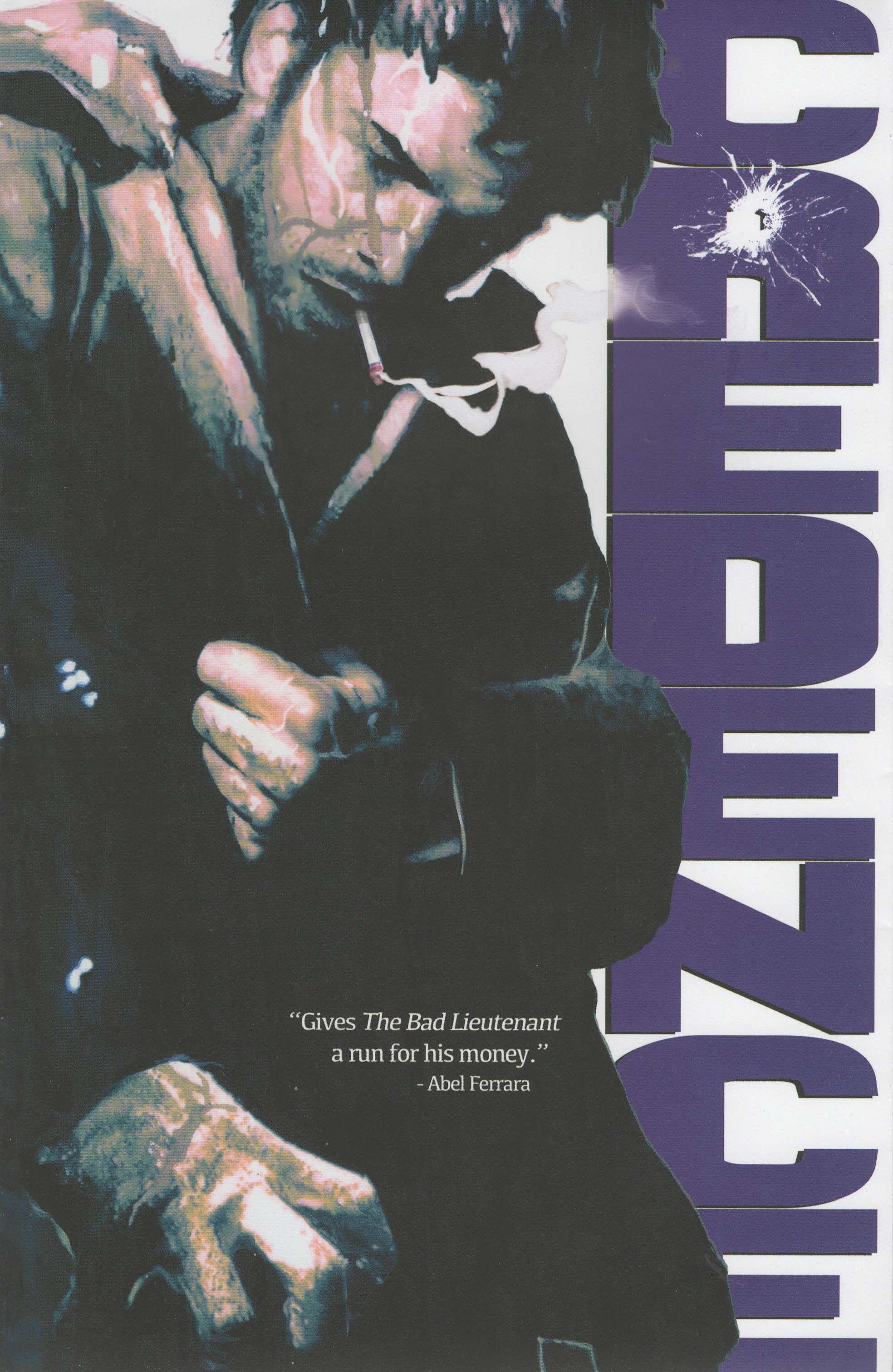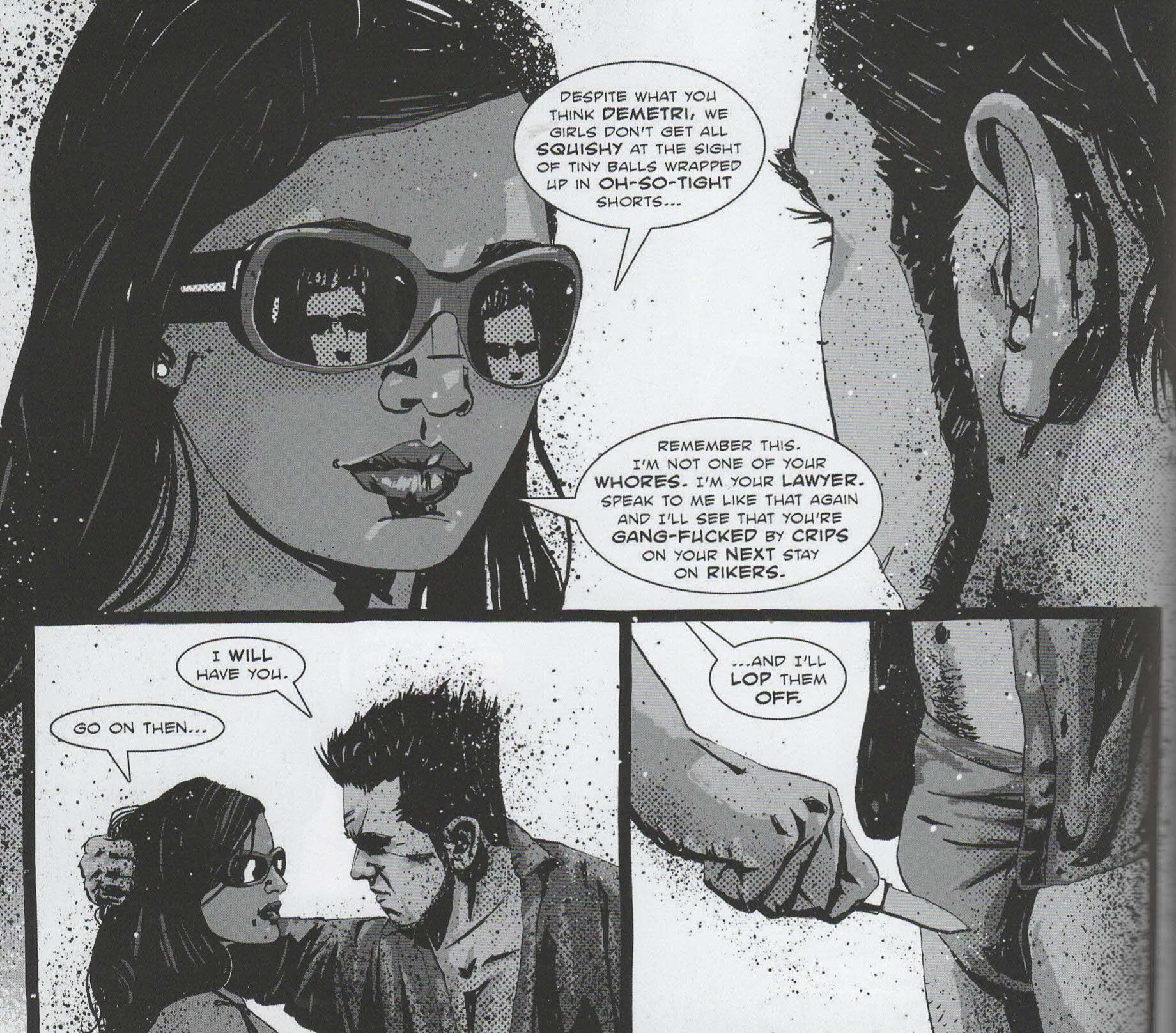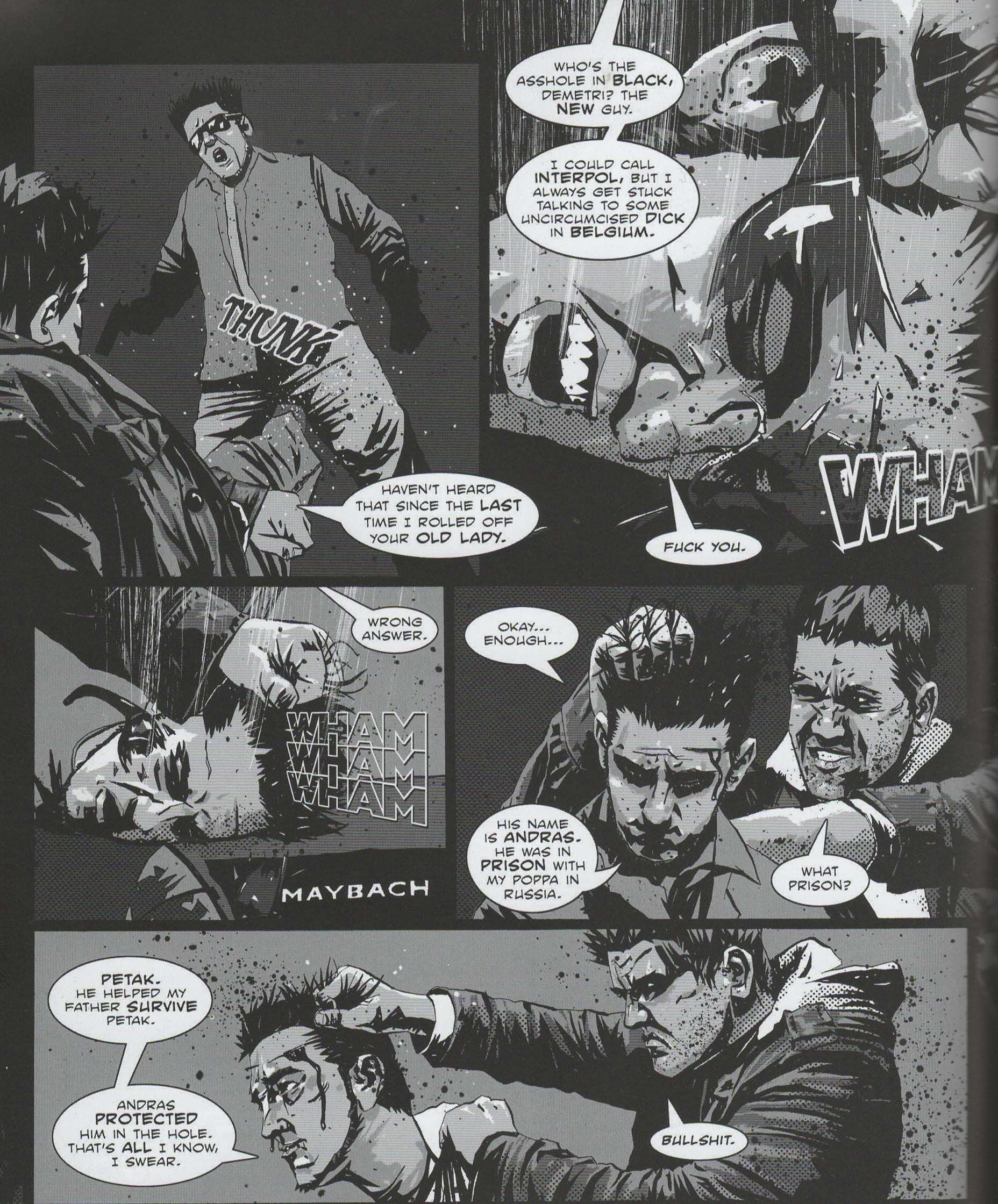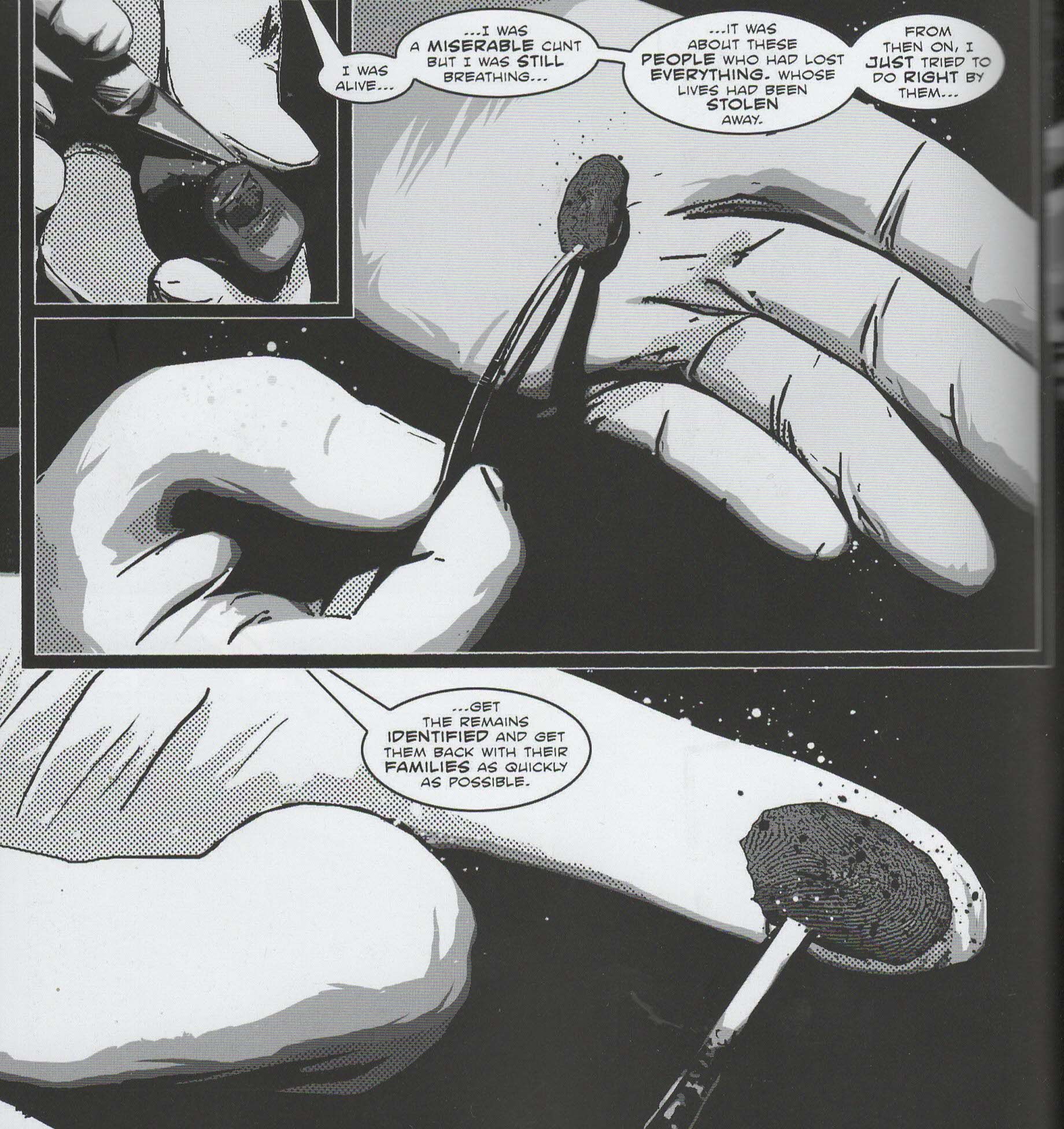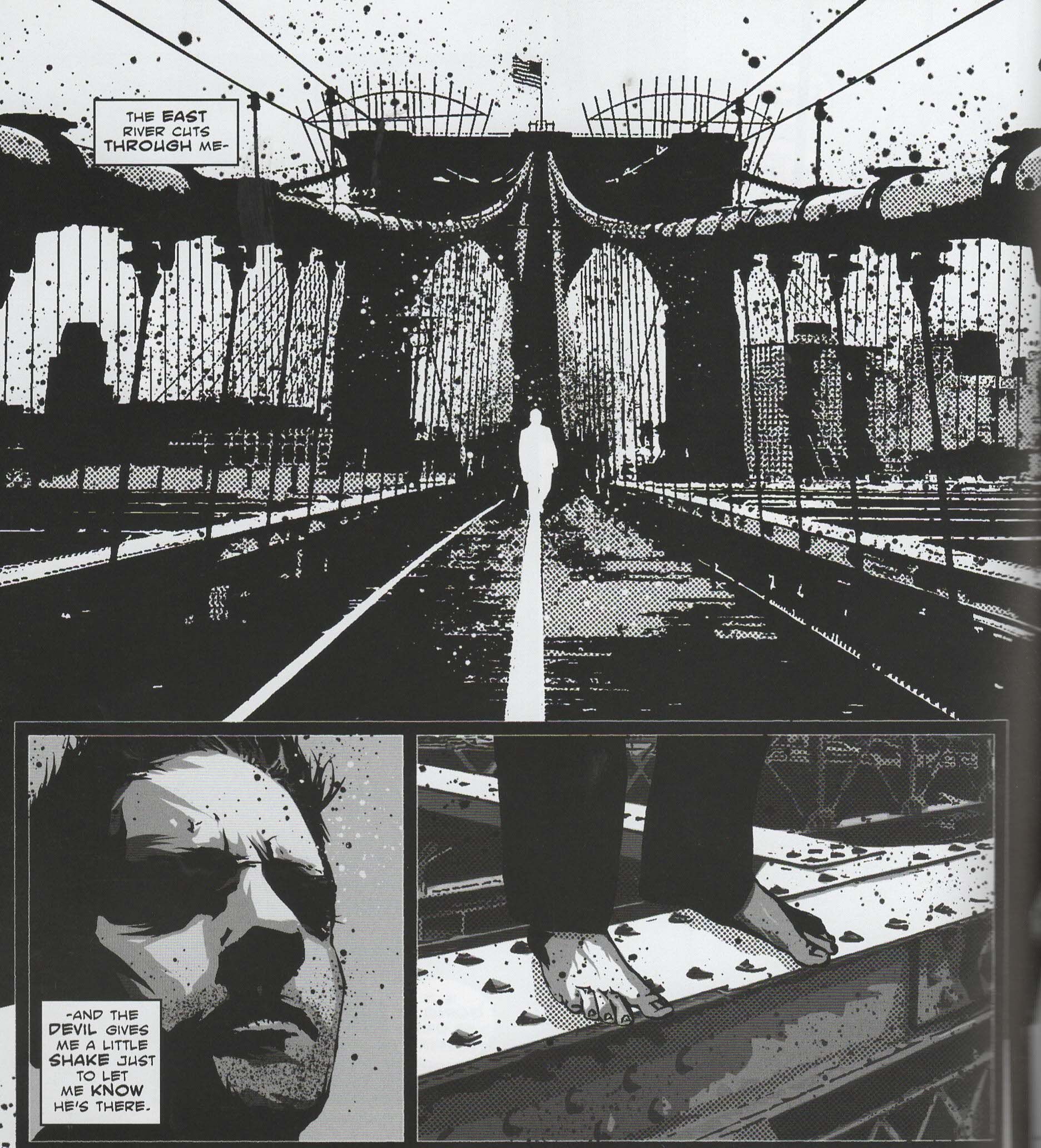"A mother screams and a baby cries, the memory gone before the blood has dried; a needle pricks the conscience to help it fade away"
Credence is written by Michael Easton and drawn by Steven Perkins, and it's published by Blackwatch Comics. It costs $19.99, which isn't bad, as it's a big, meaty hunk of a book. It's also profoundly odd, which is why I'm still trying to piece together what I'm thinking about it. Maybe it will all come together as I write!
Abel Ferrara's pull quote on the front of this comic isn't wrong, as Danny Credence, our protagonist, really does give Harvey Keitel's character a run for his money (I've never seen Bad Lieutenant, but I know enough about it), except that Easton can't quite go all the way with him.
The book has a "set monsters loose to kill the real monsters" vibe to it, but Credence himself is not a monster - he's a reasonably good dad, he still watches out for his ex-wife, he falls hard for an undercover agent inside a Russian cartel, he takes care of an injured dog - but Easton wants us to believe that he's irredeemable anyway, so he does other horrible things like bang his partner's wife while said partner is in the hospital with a gunshot wound or steal cocaine from a crime scene because he's an addict. This tension between Easton wanting to show Credence in the worst possible light but still be a hero never quite rings true. The comic is deliberately uncomfortable, with racism its primary sin (Credence and his family are Irish, so they tend to be more tribal than blatantly racist, but still), but it never feels like Easton wants to commit fully to making Credence an actual bad guy who happens to work for the police. The attempts to make him less than despicable hamstrings the book, because he happens to be up against something that's pure evil, and it might have been interesting to see someone equally depraved fighting that evil.
It doesn't help that the actual plot is a bit of a mess.
Basically, a Russian cartel, run by Yvgeny Ranksoi, employs a strange dude named Andras whom Yvgeny helped survive when they were both in prison back in the old country. Easton never quite gets into how Andras became so evil that he's almost supernatural, but he does hint around at it. There are corpses of women showing up in the city, corrupted almost beyond recognition, but that plot point never really goes anywhere. So much of the book is about atmosphere - Easton wants to create a New York that has no hope, with Credence its jeremiad-spouting prophet. In this, he does a good job - the narration would be ridiculous in a "normal" setting, but in a noir-soaked atmosphere, it comes off as slightly less silly, and Credence navigates the world with a cynic's eye, blasting humanity's obsession with reality television and selfies. In the middle of all the "get off my lawn" ranting (which Credence addresses, saying that the good old days were terrible, too), Easton makes a clever if unsubtle point about circus freak shows, and how they're no different than reality shows today. We can quibble about the agency of those involved, but it's still not a bad parallel to draw. Meanwhile, Credence investigates crimes poorly, finally getting caught up in the search for Andras and bringing down the cartel, but only because he's sure they killed the agent he was having sex with. The fact that they can't find a body is kind of problematic with that, though. Eventually he discovers what Andras and the cartel are doing, and he and his vast network of family members take the law into their own hands, and then the book gets really weird. I'm honestly not even sure what happens at the end - we get celebrity cameos and bagpipe players and some philosophy, and then the book ends. It's a bizarre way to end it.
Part of this is because Easton isn't necessarily interested in the plot, he's more interested in reaching that ending.
Credence, we learn, worked at Ground Zero in the aftermath of the 11 September attacks, and that has warped his perspective on life even more than it was probably already warped. His jaundiced view of humanity and the city are challenged by Andras and even his sincere love of Ashviya, the undercover agent. The problem is that Easton doesn't really earn the ending he gives us. Credence comes to terms with the evil represented by Andras, but because Easton had tried so hard to make him bitter earlier in the comic, his epiphany about good and evil doesn't feel like it comes from his soul. It's a tough ending to nail, because our hero can't be too mushy before it comes, yet he can't be too passive when he does realize what's going on. Credence does something to push back the evil seeping into the city, but it doesn't feel like enough and his epiphany about the nature of evil and the nature of goodness doesn't feel like enough. His name, of course, means "belief," and he does come from a place of cynicism to a place of belief, but it doesn't feel like his journey is convincing enough.
Meanwhile, the art is very interesting.
Perkins uses a lot of photo references, and that makes his action scenes fairly stiff, but he is very good at getting the grunginess of the city and the characters. He uses paint splatter very well to create an atmosphere of dirtiness, and his tones are really nice. There are a lot of characters in the book, and occasionally the members of Credence's family become the slightest bit indistinguishable, but for the most part, Perkins does a good job with all the (mostly) male tough guys in the book. For some scenes toward the end, he uses a rougher brush and more of it, which is an interesting change, while his celebrity cameos are spot on. It's a crowded book, and that means Perkins has a lot on each page and occasionally the storytelling suffers, but it also means that the book feels claustrophobic, which it's supposed to. It's not great art, but it is solid.
I'm still trying to figure out how I feel about Credence. I told you I might not sort it out before the end of the review! It's fascinating, if flawed, and it's nice to see Easton try something different with the hard-boiled cop trope. It's definitely more thoughtful than you might expect, but it doesn't quite reach what Easton is trying to do. It's an unusual comic, and it's worth a look if you're in the mood for something a bit different.
Rating: ★ ★ ★ ★ ★ ★ ½ ☆ ☆ ☆

